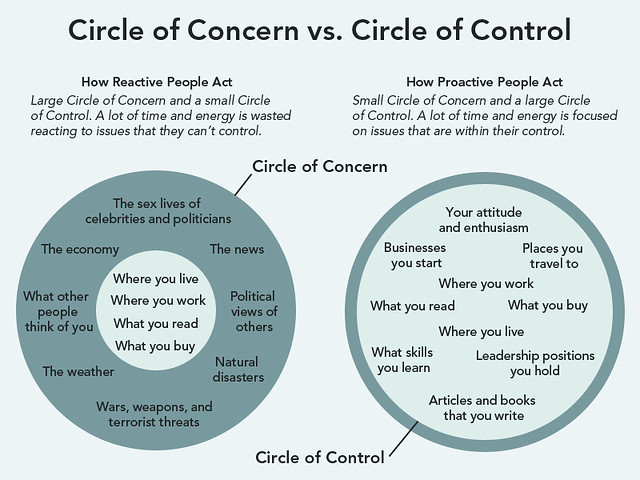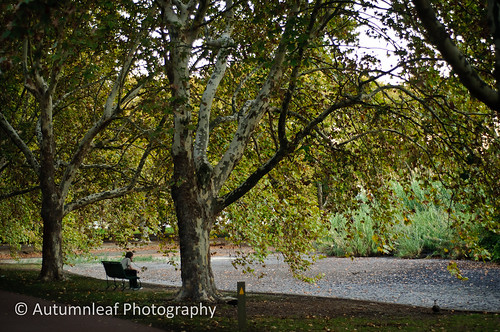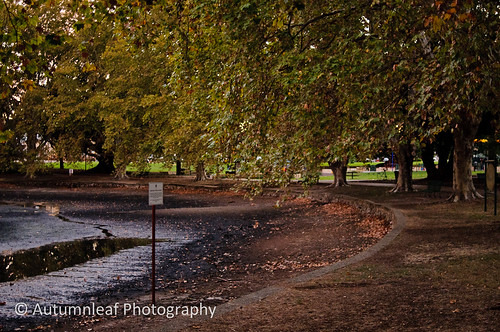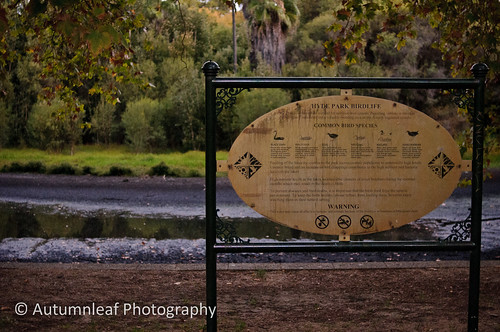Here's a great article to share with everyone.....
When it comes to success, it’s easy to think that people blessed with brains are inevitably going to leave the rest of us in the dust. But new research from Stanford University will change your mind (and your attitude).
Psychologist Carol Dweck has spent her entire career studying attitude and performance, and her latest study shows that your attitude is a better predictor of your success than your IQ.
Dweck found that people’s core attitudes fall into one of two categories: a fixed mindset or a growth mindset.
With a fixed mindset, you believe you are who you are and you cannot change. This creates problems when you’re challenged because anything that appears to be more than you can handle is bound to make you feel hopeless and overwhelmed.
People with a growth mindset believe that they can improve with effort. They outperform those with a fixed mindset, even when they have a lower IQ, because they embrace challenges, treating them as opportunities to learn something new.
Common sense would suggest that having ability, like being smart, inspires confidence. It does, but only while the going is easy. The deciding factor in life is how you handle setbacks and challenges. People with a growth mindset welcome setbacks with open arms.
According to Dweck, success in life is all about how you deal with failure. She describes the approach to failure of people with the growth mindset this way,
“Failure is information—we label it failure, but it’s more like, ‘This didn’t work, and I’m a problem solver, so I’ll try something else.’”
Regardless of which side of the chart you fall on, you can make changes and develop a growth mindset. What follows are some strategies that will fine-tune your mindset and help you make certain it’s as growth oriented as possible.
Don’t stay helpless. We all hit moments when we feel helpless. The test is how we react to that feeling. We can either learn from it and move forward or let it drag us down. There are countless successful people who would have never made it if they had succumbed to feelings of helplessness: Walt Disney was fired from the Kansas City Star because he “lacked imagination and had no good ideas,” Oprah Winfrey was fired from her job as a TV anchor in Baltimore for being “too emotionally invested in her stories,” Henry Ford had two failed car companies prior to succeeding with Ford, and Steven Spielberg was rejected by USC’s Cinematic Arts School multiple times. Imagine what would have happened if any of these people had a fixed mindset. They would have succumbed to the rejection and given up hope. People with a growth mindset don’t feel helpless because they know that in order to be successful, you need to be willing to fail hard and then bounce right back.
Be passionate. Empowered people pursue their passions relentlessly. There’s always going to be someone who’s more naturally talented than you are, but what you lack in talent, you can make up for in passion. Empowered people’s passion is what drives their unrelenting pursuit of excellence. Warren Buffet recommends finding your truest passions using, what he calls, the 5/25 technique: Write down the 25 things that you care about the most. Then, cross out the bottom 20. The remaining 5 are your true passions. Everything else is merely a distraction.
Take action. It’s not that people with a growth mindset are able to overcome their fears because they are braver than the rest of us; it’s just that they know fear and anxiety are paralyzing emotions and that the best way to overcome this paralysis is to take action. People with a growth mindset are empowered, and empowered people know that there’s no such thing as a truly perfect moment to move forward. So why wait for one? Taking action turns all your worry and concern about failure into positive, focused energy.
Then go the extra mile (or two). Empowered people give it their all, even on their worst days. They’re always pushing themselves to go the extra mile. One of Bruce Lee’s pupils ran three miles every day with him. One day, they were about to hit the three-mile mark when Bruce said, “Let’s do two more.” His pupil was tired and said, “I’ll die if I run two more.” Bruce’s response? “Then do it.” His pupil became so angry that he finished the full five miles. Exhausted and furious, he confronted Bruce about his comment, and Bruce explained it this way: “Quit and you might as well be dead. If you always put limits on what you can do, physical or anything else, it’ll spread over into the rest of your life. It’ll spread into your work, into your morality, into your entire being. There are no limits. There are plateaus, but you must not stay there; you must go beyond them. If it kills you, it kills you. A man must constantly exceed his level.”
If you aren’t getting a little bit better each day, then you’re most likely getting a little worse—and what kind of life is that?
Expect results. People with a growth mindset know that they’re going to fail from time to time, but they never let that keep them from expecting results. Expecting results keeps you motivated and feeds the cycle of empowerment. After all, if you don’t think you’re going to succeed, then why bother?
Be flexible. Everyone encounters unanticipated adversity. People with an empowered, growth-oriented mindset embrace adversity as a means for improvement, as opposed to something that holds them back. When an unexpected situation challenges an empowered person, they flex until they get results.
Don't complain when things don't go your way. Complaining is an obvious sign of a fixed mindset. A growth mindset looks for opportunity in everything, so there’s no room for complaints.
Bringing It All Together
By keeping track of how you respond to the little things, you can work every day to keep yourself on the right side of the chart above.
ABOUT THE AUTHOR:
Dr. Travis Bradberry is the award-winning co-author of the #1 bestselling book, Emotional Intelligence 2.0, and the cofounder of TalentSmart, the world's leading provider of emotional intelligence tests and training, serving more than 75% of Fortune 500 companies. His bestselling books have been translated into 25 languages and are available in more than 150 countries. Dr. Bradberry has written for, or been covered by, Newsweek, TIME, BusinessWeek, Fortune, Forbes, Fast Company, Inc., USA Today, The Wall Street Journal, The Washington Post, and The Harvard Business Review.
“Failure is information—we label it failure, but it’s more like, ‘This didn’t work, and I’m a problem solver, so I’ll try something else.’”
Thursday, 25 June 2020
Tuesday, 26 March 2019
Life philosophies worth learning from..
This article "My life philosophy: 50 lessons from 50 years" appeared on my RSS feed today.
The author shared a lots of good life principles, and I found many of them aligning to my own, or those that I love to adopt.
Here are my top 10 favourites life principles:
The author shared a lots of good life principles, and I found many of them aligning to my own, or those that I love to adopt.
Here are my top 10 favourites life principles:
- Self-care comes first. If you're not healthy, it's tough to be happy. Before you can take care of your friends and your family, you need to take care of yourself. Eat well. Exercise. Nurture your mind, body, and spirit. Your body is a temple; treat it like one. If you don't have your health, you've got nothing.
- You get what you give. Your outer life is a reflection of your inner life. If you think the world is a shitty place, the world is going to be a shitty place. If you think people are out to get you, people will be out to get you. But if you believe people are basically good, you'll find that this is true wherever you go.
- Be impeccable with your word. Be honest — with yourself and others. If you promise to do something, do it. When somebody asks you a question, tell the truth. Practice what you preach. Avoid gossip.
- Don't take things personally. When people criticize you and your actions, it's not about you— it's about them. They can't know what it's like to be you and live your life. When you take things personally, you're allowing others to control your life and your happiness. Heed the Arab proverb: “The dogs bark but the caravan moves on.”
- Don't make assumptions. The flip side of not taking things personally is to not assume you know what's going on in other people's heads. Don't assume you know the motivations for their actions. Just as their reality doesn't reflect your reality, your life is not theirs. Give people the benefit of the doubt.
- Always do your best. Your best varies from moment to moment. Some days in the gym, for instance, I'm able to lift heavier weights than on other days. Some days I can run faster than usual; some days, I'm slower. That's okay. What matters most is that I give my best effort every time. No matter what you do, do it as well as you can. This is one of the keys to success and happiness.
- Action cures fear. Thought creates fear; action cures it. What we're actually afraid of is the unknown. We like certainty, and choosing to do something with an uncertain outcome makes us nervous. Taking the first step can be scary, but each additional step becomes easier and easier. When you act, you remove the mystery. Action creates confidence. It creates motivation. (Most people think motivation comes before action. They're wrong. Action leads to motivation.)
- You're more likely to regret the things you don't do than the things you do. That's not to say you should be an asshole, or that you won't regret making big mistakes. But generally speaking, you're more likely to be sorry that you didn't introduce yourself to the barista at the coffeehouse, didn't go bungee-jumping with your friends, didn't stay in touch with your friends.
- Make room for the big rocks first. It's easy to let your time and energy be sucked up by trivial errands and tasks. You find you no longer have space for the things you thought were most important. Don't do that. Always carve out time and attention for those people and activities you value most. If the house doesn't get clean because you were hanging out with a friend, so what? If you didn't mow the lawn because you went to the gym instead, that's a good thing. Tackle the important, then the trivial.
- The meaning of life is the meaning you decide to give it. Some people are searchers. They wander through life looking for answers…but rarely find them. Others accept without question what an outside authority tells them is true. I believe that the meaning of life comes from within, from the things that you lean to prioritize and value. Nobody is going to tell you what life should mean to you; you have to decide that for yourself.
To be honest, there are many more good life principles listed in the article by the author, but there is one book that contains even better life principles, that is found in the Book of Proverbs in our bible.
You'll be happier if you focus on efforts and attention only on the things you can control....
Each of us has a large number of things about which we're concerned: our health, our family, our friends, our jobs; world affairs, the plight of the poor, the threat of terrorism, the current political climate.
Within that Circle of Concern, there is only a smaller subset of things over which we have actual and direct control, such as how much we exercise, what time we go to bed, whether we leave for work on time; what we eat, where we live, with whom we socialise.
You'll be happier and more productive if you dedicate yourself to your Circle of Control and ignore your Circle of Concern.
Excerpts from "My life philosophy: 50 lessons from 50 years"
Thursday, 14 March 2019
Consistently is more important than intensity
Leadership, relationship, love,... this is the most convincing, educating and power sharing I have ever heard.
If you want to know WHY people fall in, and stay in love… listen closely. Simon Sinek Explains The REAL REASON People Fall and STAY In Love!
If you want to know WHY people fall in, and stay in love… listen closely. Simon Sinek Explains The REAL REASON People Fall and STAY In Love!
How to achieve more in life - its time to get SMART!
We are struggle for time in our busy lives. We are either busy to finish our tasks at work, or we are busy with our family chores. For some, it may be a case of finding enough time to spend time with their love ones, or even finding time to work on their life goals or aspirations.
I constantly find it tough to get all the things I want to do completed. There are "projects" that I have started at home but never finished. I would love to reorganise in my closet or my kitchen pantry but never quite find the time to do it. Then, there is also my career aspiration, my personal bucket lists to tick off, and most importantly, relationship building with the Lord, yes, I am a bible beliving, Christ fellowing Christian.
Time and time again, I will reflect on my life, where I am, how I am currently going, and what am I going to do about stuff that are yet unaccomplished and undone.
I often share something with folks around me, or to those poor souls who happen to unwittedly seek advice from me, we need to be SMART about things!
SMART, or rather the, the acronym - S.M.A.R.T - really stands for:
Specific
Measurable
Achieveable
Result Focus (can also be Relevant)
Time-bound
It is all about asking ourselves these questions:
1. Specific - What am I trying to accomplish? What's my goal, How and why will it be accomplished?
2. Measurable - How will I measure whether I have reached my goal? What are the key indicators?
3. Achievable - Is it possible, is it realistic, has it been done before by others? Am I just a dreamer? Am I ready or capable to do it? Do I have the necessary knowledge, skills, abilities and resources to accomplish the goal? Will meeting the goal challenge me without defeating me?
4. Result Focused - What is the reason, purpose or benefit of accomplishing the goal? Is it personal development or ego? What will reaching the goal brings me and what sacrifices do I have to make?
5. Time bound (Time-boxing) - What is the established completion date? Are there any urgency to complete it, how long do I have to complete it?
Sounds like a business oriented management speak? Perhaps. But perhaps this is a technique that successful people have picked up, that I can learn to utilise in my daily life. Perhaps if I have the discipline to follow this SMART way of doing things. I could achieve much more outcome that I have always wanted or dreamt of doing.
Challenging myself to think differently!
I often find myself reverting back to my comfort zone or doing something I am customed to the same way, the same method, the same process, everytime. We are taught and trained in schools to "follow the process", to align what we do "according to the best practices". This is not wrong by any measures, but do we sometimes pause to evaluate and think about what we do, and figure out if there are actually better ways of doing things that we are not aware of, or are we too busy to consider what we do and determine if the process needs to change?
How often when things are not working, or when some process is broken, we often try to remediate them by adding more processes, more steps to try to overcome the situation. It's crazy.
This reminds me of a famous quote “Insanity is doing the same thing over and over again and expecting different results.”
Perhaps we need to pause and think through what we do, we need to constantly evaluate how we do things and if our processes, the methodologies are still relevant, effective and right. We need to challenge ourselves to "think outside the box" and to avoid "group think". We need to have the courage to change, and most importantly, not afraid to learn new things, new ways to do things differently. We need to cast away the mindset that "you can't teach old dogs new tricks", be bold and courageous to try new ways, new methods, new processes. We might even surprise ourselves.
Friday, 22 April 2011
Photo of the day - 22 April

A photo of leaves from a liquid ambar tree.
The liquid amber tree leaves are very much similar to maple leaves, in terms of palmately lobed shape and fall foliage color. Also, both these trees are adapted in similar growing conditions.
Liquid Ambar (also known as American Sweetgum, Redgum, and sometime also spelt as "Liquid Amber") is a genus of 4 species of deciduous trees in the witchhazel (Hamamelidaceae) family. With a somewhat discrete distribution range, these trees are found in North and Central America, East Asia, and Turkey. These impressive trees produce some of the most spectacular autumn foliage known, and Liquid Ambar styraciflua, in particular, is a breathtaking sight when in full autumn color. The genus name literally means liquid amber, and refers to the resin exuded by the winter buds. Known as storax, the resin is used in perfumery and cosmetics.
Labels:
Photo,
Photo Of the Day
The sorry state of Hyde Park
Before I get 1000 responses saying I am talking rubbish here, I am referring to the Hyde Park in Perth, or more accurately, situated in Leederville, in the city of Vincent. So for all the readers out there, the one I am referring to is not the one in London, Chicago or Sydney. It is right here in my own hometown here in Perth.
After having not been to Hyde Park since end of last year for a wedding shoot, I went there to check it out for a wedding I am shooting tomorrow. Back in my mind, I thought Hyde Park in this current autumn days would yield great imageries. I would get nice soft light peeling through layers of leaves from the maple trees. The golden light in the late afternoon would create a really romantic backdrops for the bridal couple. Ah, heaven!
Much to my surprise and great disappointment, when I surveyed the ground yesterday, the park (or should I say the lake) was in such a state of dismay. Ok, Hyde Park is now off the list of locations I would advice my couples to do their formal portraits until we get lots of rain in Perth, hopefully lots and lots of rain in the winter.
One does wonder why will happen to the water birds that the lakes in the park typically support. There were still patches of water in the once totally filled up lake. The waterbirds (ducks, Ibis, geese, etc) were making do with whatever the little patches of water left. It was indeed a very sorry sight....
After having not been to Hyde Park since end of last year for a wedding shoot, I went there to check it out for a wedding I am shooting tomorrow. Back in my mind, I thought Hyde Park in this current autumn days would yield great imageries. I would get nice soft light peeling through layers of leaves from the maple trees. The golden light in the late afternoon would create a really romantic backdrops for the bridal couple. Ah, heaven!
Much to my surprise and great disappointment, when I surveyed the ground yesterday, the park (or should I say the lake) was in such a state of dismay. Ok, Hyde Park is now off the list of locations I would advice my couples to do their formal portraits until we get lots of rain in Perth, hopefully lots and lots of rain in the winter.
One does wonder why will happen to the water birds that the lakes in the park typically support. There were still patches of water in the once totally filled up lake. The waterbirds (ducks, Ibis, geese, etc) were making do with whatever the little patches of water left. It was indeed a very sorry sight....
Labels:
Hyde Park
Friday, 3 September 2010
Photo of the day - 3rd September

I am very tempted to call this image "Footprints" or "Footprints in the sand". There are a few of variants of this poem which can easily found on the web. This poem is commonly attributed to Margaret Fishback Powers (who wrote this in 1964). However, it appears that this poem was actually written much early in 1936 by another lady, Mary Stevenson.
Here is Mary Stevenson's version:
One night I dreamed I was walking along the beach with the Lord. Many scenes from my life flashed across the sky.
In each scene I noticed footprints in the sand. Sometimes there were two sets of footprints, other times there was one only.
This bothered me because I noticed that during the low periods of my life, when I was suffering from anguish, sorrow or defeat, I could see only one set of footprints, so I said to the Lord,
“You promised me Lord,
that if I followed you, you would walk with me always. But I have noticed that during the most trying periods of my life there has only been one set of footprints in the sand. Why, when I needed you most, have you not been there for me?”
The Lord replied, “The years when you have seen only one set of footprints, my child, is when I carried you.”
Finally, a note of this image... I took this photo at a place called Perry Sandhills near the town of Wentworth in NSW. Perry Sandhills is a vast 400 acres of continuously shifting sand dunes. From the vantage point in which I took the photo one could easily imagine being in a desert. I was also trying to explore minimalism and capturing the wave patterns in the sand in within this landscape.
I hope you this photo as much as I do.
Labels:
Photo,
Photo Of the Day,
poem,
travel
Friday, 20 August 2010
Photo of the day - 20th August

Bordered by a wide stretch of the Murray River, home to majestic River Red Gums and a fantastic variety of birdlife, Kings Billabong Reserve is an ideal place to discover nature and history within minutes of Mildura.
Local Aboriginal people enjoyed the billabong's rich life-supporting wetland food supply. Shell middens (kitchen hearths), burials and scarred trees indicate a lifestyle celebrated on these banks for centuries.
Kings Billabong took its name from Captain James King, who navigated the Murray River and its tributaries in the late 19th century. The Chaffey Brothers, supported by Alfred Deakin who later became Prime Minister, selected Mildura (originally a sheep station) as a suitable location for Australia's first irrigation settlement. The reserve was logged until the 1950s to supply fuel for steam-powered paddleboats and pumps. There was also cattle grazing, cultivation and dried fruit rack sites in the reserve until 1989.
Labels:
Photo,
Photo Of the Day
Subscribe to:
Posts (Atom)











